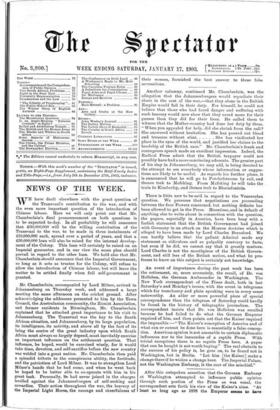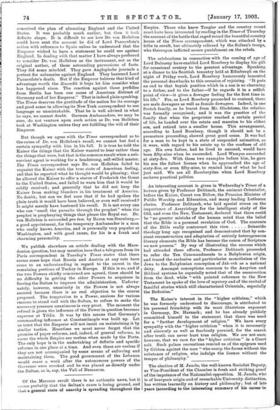After this outspoken assertion that the German Embassy at Washington
attempted to influence public opinion through such portion of the Press as was venal, the correspondent sets forth his view of the Kaiser's aims. "At least so long ago as 1898 the Emperor seems to have
conceived the plan of alienating England and the United States. It was probably much earlier, but then it took definite shape. It is difficult to see how Dr. von Holleben could have sent the account he did of Lord Pauncefote's action with reference to Spain unless he understood that the Emperor wished to have a statement he could use against England. In dealing with that matter I have always preferred to consider Dr. von Holleben as the instrument, not as the original author, of those astounding perversions of facts. They did some mischief. They gave Anglophobe journals a pretext for calumnies against England. They hastened Lord Pauncefote's death. But if the Emperor believes that kind of advantage worth the discredit it buys let him consider what has happened since. The reaction against those perfidies from Berlin has been one cause of American distrust of Germany and of her Emperor." That is indeed plain speaking. The Times deserves the gratitude of the nation for its courage and good sense in allowing its New York correspondent to use language so unmistakable. That he is well advised in what he says, we cannot doubt. German Ambassadors, we may be sure, do not venture upon such action as Dr. von Rolleben took at Washington unless they are fulfilling the will of their Emperor.











































 Previous page
Previous page